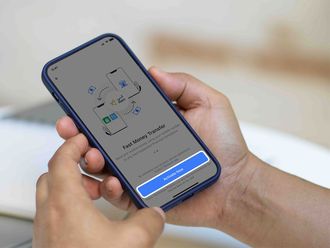
If your credit-card data has been compromised, you would be right to be massively concerned. Unauthorised transactions are an unwanted expense and cause of stress — to put it mildly — for the cardholder. Siddarth Razdan of I Capital Management Services, a corporate finance advisory firm, says, “Credit-card breach may happen online or offline when someone gains access to your credit-card details and security codes either due to loss, theft, intentional misuse or a security breach at the card-issuing institution.”
“Cards can also be cloned, where details are copied onto a blank card and then used in ATMs to withdraw cash if the PIN has also been compromised,” says Paul Jude, Wealth Manager at Global Eye, a Dubai-based wealth management business. The moment you realise your card has been breached, take immediate action to spare yourself from more losses down the line.
Be more cautious
Watch for all signs of possible trouble. Razdan says, “Banks and institutions have software in place to prevent such [suspicious foreign] transactions and it is not uncommon for them to call customers to verify the authenticity of such transactions.” If in doubt contact the card provider for support.
Review bank statements
Raman Muralidharan, Regional Head of Customer Value Management, Retail Banking and Wealth Management, HSBC, says, “Check your balances on a regular basis to ensure no excessive charges or fraudulent activity has taken place. Individuals will quickly be able to tell if their credit-card information has been stolen or if there has been any unauthorised use.
“You must update the issuing bank with your latest mobile number as transactions on your credit or debit card trigger an SMS and the individual should immediately get in touch with the bank if he or she didn’t authorise these transactions.”
Reach out
Inform the card provider as soon as you suspect your card has been compromised to ensure you have no liability for fraud, says Jude. “A bank has no mandate to charge a fraudulent payment to the customer and will incur the loss themselves.
“However, if the client knew or had reason to believe that their card had been compromised and did not inform the bank, they will be liable for any losses up to the point they informed the card provider,” he adds.
Stop using the card
Customers should stop using the affected cards at once and wait for the bank to resolve the issue, says Muralidharan. “Should the card be lost or stolen, the customer should promptly lodge a police complaint.”
Cooperate with the bank
No further card transactions will be honoured, says Razdan. “The bank will investigate suspected fraudulent transactions by calling for credit-card charge slips and making enquiries with customers and merchants where the card was used. The time taken for this largely depends on whether the suspect transactions were local or overseas. Banks may lodge a police complaint. Customers are usually covered by insurance against fraudulent use,” he explains.
Request a new card
Muralidharan adds, “When customers inform the bank about their card being hacked, the bank’s specialised team immediately investigates on an individual basis, block suspect transactions, temporarily suspend or close the concerned card and help customers open a new one.” If the bank doesn’t cancel the card automatically and issue a new one, apply for it yourself.












